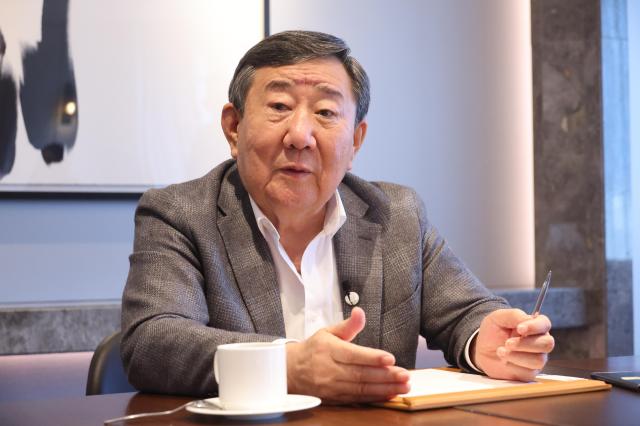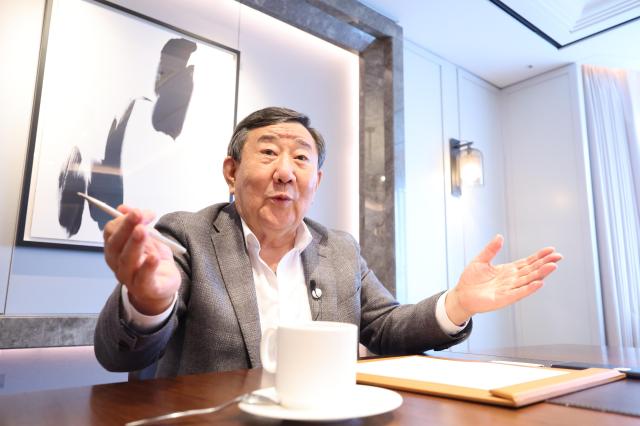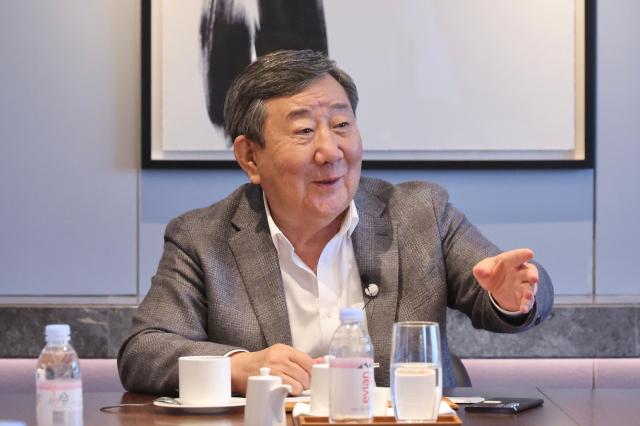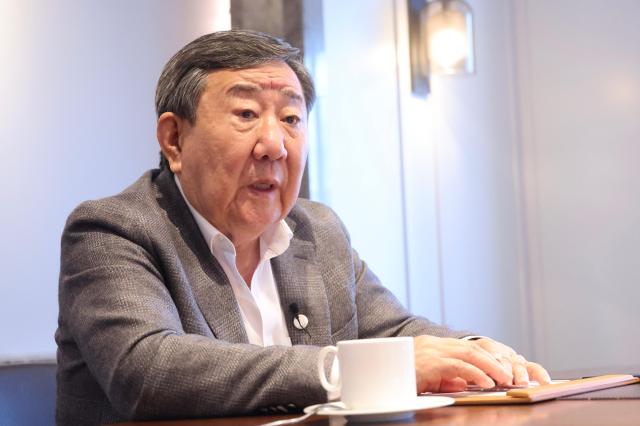
SEOUL, October 17 (AJP) - The K-Park Project, rising in Kazakhstan’s flagship smart city of Alatau, encapsulates both the endurance of the Koryo-saram—descendants of Korean settlers across the Russian Far East in the 19th and early 20th centuries—and their forward-looking confidence as a thriving minority in Kazakhstan’s digital transformation drive.
"K-Park is not merely a memorial project. It is a symbol of gratitude toward the Kazakh people who embraced our ancestors—and a message to the next generation: never be afraid," said Yuriy Tskhay, founder of the Caspian Group, one of Kazakhstan’s largest conglomerates with business interests spanning urban development and finance, in an interview with AJP.
Tskhay, named among Kazakhstan’s 50 most influential business leaders by Forbes, described K-Park as "a collective endeavor of the entire Koryo-saram community," noting that "nearly every Korean business leader in Kazakhstan has contributed to the effort."
Tskhay and the Caspian Group play a central role in the Kazakh government’s grand campaign to build Alatau, a fully digitalized and AI-powered city north of Almaty. He joined a high-level government delegation to Seoul this week to seek Korean participation and partnership in the project.
The first Korean migrants crossed the Tumen River into Russian territory in 1863, with larger waves following Japan’s annexation of Korea in 1910. Neither North nor South Koreans, the community’s fate changed in 1937 when Stalin’s Soviet regime deported roughly 172,000 Koreans to Central Asia.

Tskhay, himself born into one of those deported families, said the K-Park project embodies "the endurance, gratitude, and aspirations of all Koryo-saram descendants."
Located within Alatau City, K-Park is envisioned as a cultural and business hub for ethnic Koreans across Eurasia. The sprawling Alatau project—spanning 880 square kilometers, roughly 1.1 times the size of Busan—involves a 25-trillion-won (about $18 billion) government investment and is designed to host 1.9 million residents and 1.1 million jobs. It will feature four major zones for industry, finance, tourism, and education.
"The idea emerged when Koryo-saram leaders from different fields—culture, business, journalism—came together to create a symbolic space," Tskhay explained. "After many discussions, we agreed on a center that would blend culture and commerce, and serve as a Eurasian hub for Korean cultural industries."
Ground was broken in September, with completion scheduled for 2027—coinciding with the 90th anniversary of the 1937 deportation.
"When our ancestors arrived, Kazakhstan itself was struggling," said Tskhay. "Yet the Kazakh people shared their land and food. K-Park is our way of passing that gratitude on and showing how far we’ve come."
More than 300 people attended the groundbreaking ceremony, which culminated in a moving rendition of the Korean folk song "Arirang," echoing across the site. "It was one of the most emotional moments of my life," Tskhay recalled. "Kazakhstan gave me the chance to study, build a business, and earn respect—it shaped who I am."

A former boxer and coach, Tskhay credits his athletic background with his grit and perseverance. "When I first visited New York, the cultural shock was transformative," he said. "But my first ten years in business were brutally hard—I knew nothing beyond boxing. No one believed in my vision, but that struggle became my foundation."
To younger generations, Tskhay offers a message of self-belief. "There’s no such thing as impossible. If you set a goal and work toward it daily, you’ll achieve it," he said. "My parents once told me to 'live quietly' to survive—but that era has ended. Now is the time to act, to speak, and to lead."

Looking ahead, Tskhay hopes K-Park will serve as both a tribute and a springboard—connecting ethnic Koreans across borders under a shared vision.
"Our ancestors focused on survival; now it’s our turn to focus on progress," he said. "K-Park should stand as a living testament—not only to the generosity of the Kazakh people, but also to the enduring spirit of the Koryo-saram."
Copyright ⓒ Aju Press All rights reserved.



![[CES 2026] NVIDIA CEO unveils Vera Rubin, full-stack AI platform](https://image.ajunews.com/content/image/2026/01/06/20260106104455173367_278_163.jpg)
![[CES 2026] NVIDIA CEO Jensen Huang delivers keynote speech](https://image.ajunews.com/content/image/2026/01/06/20260106105551777607_278_163.jpg)